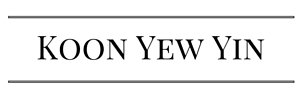I have written several articles recommending buy on Hengyuan which you can find on my blog. Those who have bought should be laughing and some wanted to know why I am so bullish to buy Hengyuan.
I am not asking you to buy to push up the price to make me richer because based on the huge volume traded daily, obviously big financial institutions are buying aggressively. These financial institutional investors have their experts to analyse the stock in detailed before they buy.
Let me try to give you a clearly understanding of Hengyuan’s business operation.
Hengyuan is in the oil refinery business. It buys crude oil to refine it into several types of oil products which are selling at different prices. The most expensive is high grade petroleum and the cheapest is bitumen tar for the road surface.
Its profit essentially depends on its margin of profit or crack spread.
Crack spread is a term used on the oil industry and futures trading for the differential between the price of crude oil and petroleum products extracted from it. The spread approximates the profit margin that an oil refinery can expect to make by “cracking” the long-chain hydrocarbons of crude oil into useful shorter-chain petroleum products.
In the futures markets, the “crack spread” is a specific spread trade involving simultaneously buying and selling contracts in crude oil and one or more derivative products, typically gasoline and heating oil. Oil refineries may trade a crack spread to hedge the price risk of their operations, while speculators attempt to profit from changes in the oil/gasoline price differential.
Factors affecting the crack spread
One of the most important factors affecting the crack spread is the relative proportion of various petroleum products produced by a refinery. Refineries produce many products from crude oil, including gasoline, kerosene, diesel, heating oil, aviation fuel, asphalt and others. To some degree, the proportion of each product produced can be varied in order to suit the demands of the local market. Regional differences in the demand for each refined product depend upon the relative demand for fuel for heating, cooking or transportation purposes. Within a region, there can also be seasonal differences in demand for heating fuel versus transportation fuel.
The mix of refined products is also affected by the particular blend of crude oil feedstock processed by a refinery, and by the capabilities of the refinery. Heavier crude oils contain a higher proportion of heavy hydrocarbons composed of longer carbon chains. As a result, heavy crude oil is more difficult to refine into lighter products such as gasoline. A refinery using less sophisticated processes will be constrained in its ability to optimize its mix of refined products when processing heavy oil.
The crack spread chart
The chart below shows Hengyuan’s crack spread which has been low in the 1st half year and is improving for the 2nd half year.
As a result, its 1st half year eps was only Rm 1.20, as announced its 3nd quarter was Rm 1.21 and 4th quarter should be better than the 3rd quarter. Assuming its 4th quarter eps is Rm 1.30, its total eps for the year will be Rm 3.71 per share.
Assuming it will be selling at P/E 5, the price should be Rm 18 per share, when its 4th quarter result is announced before the end of February 2018. Can you find another stock with similar quality selling P/E 5?
